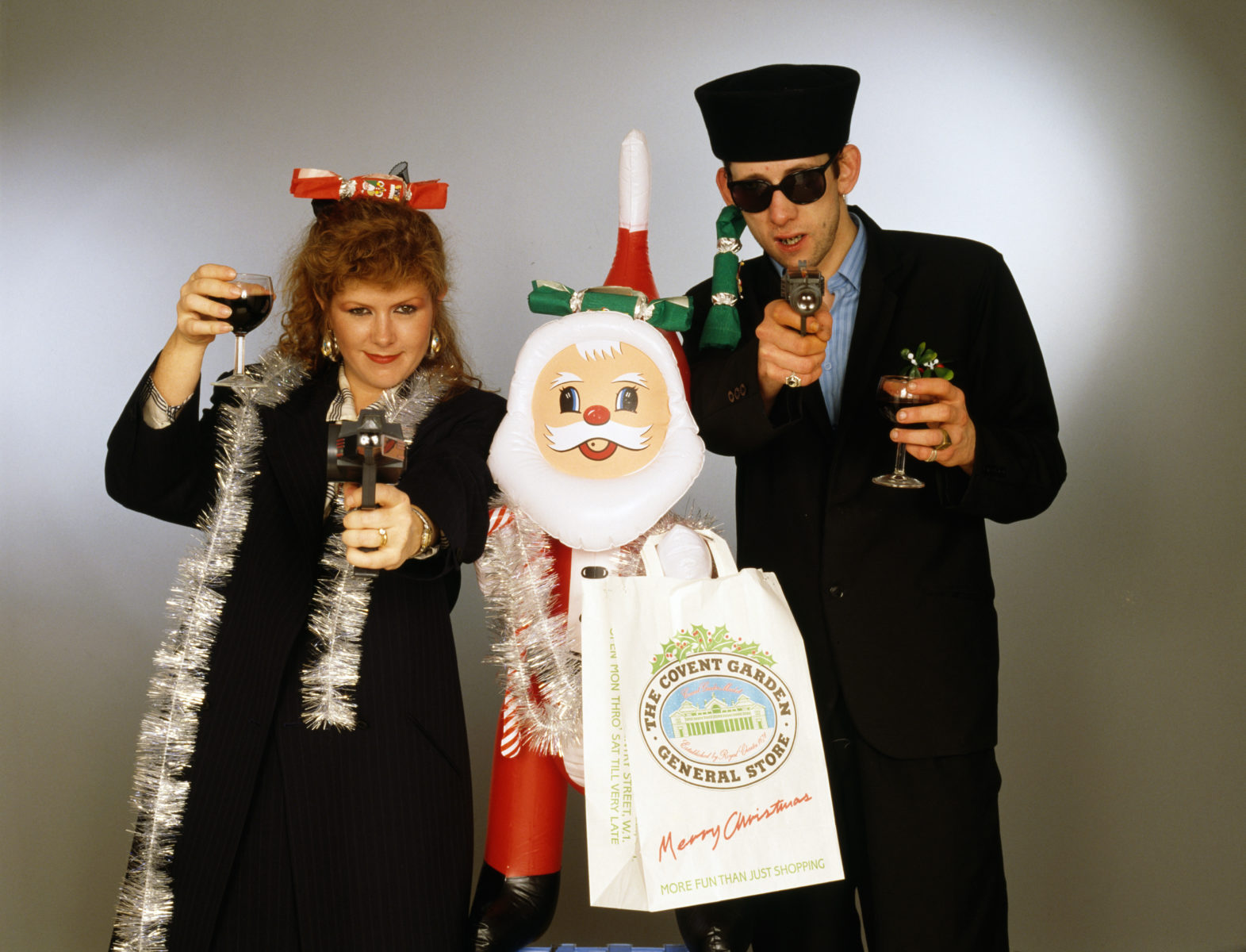Once upon a time—hard times, as it were—in an unrelenting, kick-you-when-you’re-down New York City, a real-life couple was struggling and fighting and having a thoroughly shit time. According to “Fairytale of New York” co-writer Jem Finer, this relatable and timeless dynamic became the basis for what some might consider one of the most fantastic and few-and-far-between-year-round holiday hits. Pogues lead-singer Shane MacGowan went to work on the lyrics, and a twisted, rollicking as-only-the-Pogues-could-do-it gorgeous-in-spite-of-itself fairytale was born.
A band like the Pogues has managed to both define and defy tradition with insatiable poetry that includes: You’re an old slut on junk/ Lying there almost dead on a drip in that bed/ You scumbag, you maggot/ You cheap lousy faggot/ Happy Christmas your arse/ I pray God it’s our last. Nope, it’s not “What Child is This?” or “Here Comes Santa Claus.” And for as easy as it seems to gurgle from well-coated throats now, in different hands—and with different voices—this would have been a tragic mess.
Produced by the acclaimed Steve Lillywhite (U2, Rolling Stones) the song was hoping for a 1987 release, but with one problem—they suddenly found themselves without someone for MacGowan to sing with. At the time, Lillywhite was married to Kirsty MacColl, daughter of folk singer Ewan MacColl, who penned the hit “Dirty Old Town” made famous by the Dubliners and, later, the Pogues. Just a few years before, in 1983, Kirsty MacColl’s hit “They Don’t Know” had enjoyed a new life covered by Tracy Ullman, Ullman’s only song to reach the Billboard Top 40. MacColl was known and revered, but her career had stalled due to many issues, including crippling stage fright. But Lillywhite worked with MacColl until they got the vocals just right before recording her part at their home studio. Her vocals were so damn good that MacGowan, already a fan, was forced to redo his own vocals to meet MacColl’s high bar. The result is a musical journey in over four minutes, with, somehow, if you choose to feel it, a sparkling glimmer of hope.
At Christmastime, or really anytime someone decides to blast this modern classic, it feels as if we’re experiencing MacGowan and MacColl going toe-to-toe in the present, eternally vibrant and at the ready. When she and Lillywhite divorced in 1994, they had two sons Jamie and Louis, and though she didn’t quite achieve the critical success of “Fairy Tale of New York,” she continued to write and sing and work, and those who knew her, loved her. MacColl was the whole package: intense talent combined with the determination and vulnerability of a fierce soldier.
On Dec. 18, 2000, a week before Christmas, she and her sons—Jamie, 15 and Louis, 13—were diving in a reef in Cozumel, Mexico, in an area that restricted boats. But a speedboat did enter the area, and to save her son Jamie’s life, she pushed him out of the way and was instantly killed on impact.
MacColl was that warrior of unshakable voice and character. Every time you listen to “Fairytale of New York,” raise a glass and acknowledge, as the song says: Kirsty, we’ve built our dreams around you.





